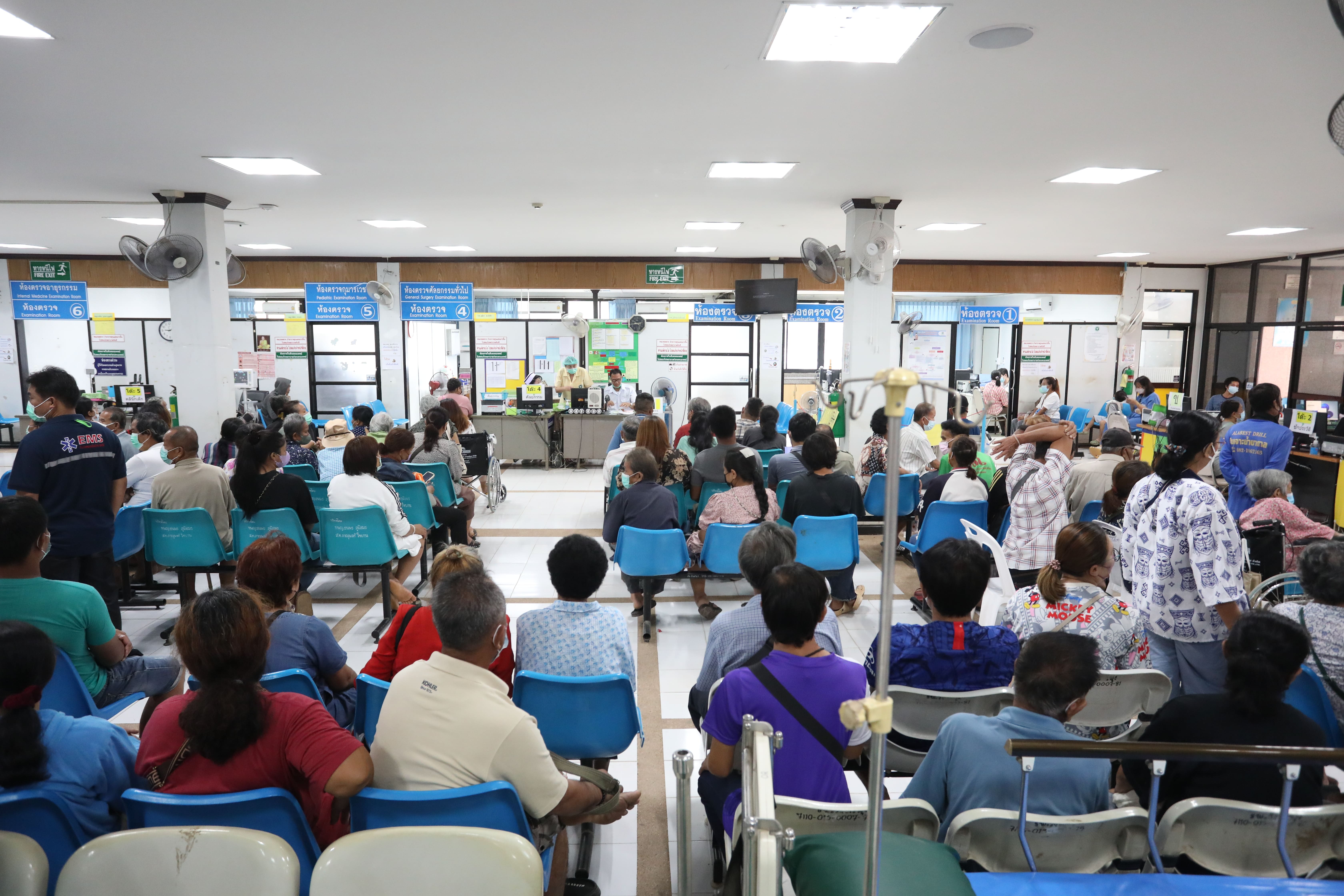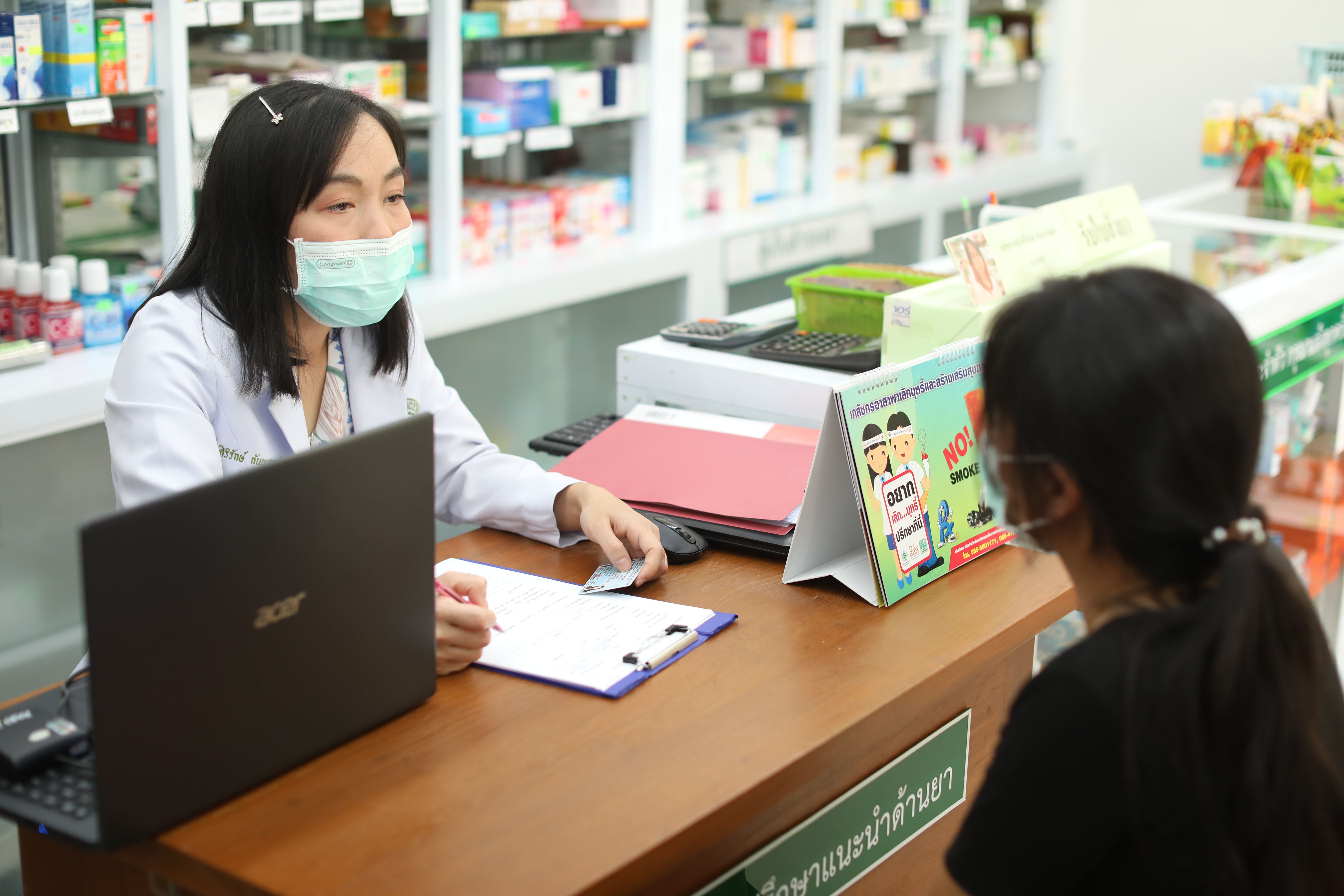
- Home
- DescriptionNews
Enhancing convenience: 22nd year of UCS
.jpg)
Enhancing convenience: 22nd year of UCS
Dr Jadej Thammatacharee
Secretary-General of the National Health Security Office (NHSO)
Secretary-General of the National Health Security Office (NHSO)
The Universal Coverage Scheme (UCS) — known as “Gold Card” scheme in Thailand — has entered its 22nd year in 2024.
This marks an occasion to celebrate the nation's achievement in sustaining and expanding the scheme, which presently extends healthcare coverage to 47 million individuals.
Over 99% of Thai citizens are covered under one of the three tax-funded healthcare schemes.
The UCS, as the most extensive scheme, provides free healthcare services irrespective of income level, contributing to the achievement of universal healthcare coverage in the country.
We recognize that Thailand’s UHC is still far from flawless. One crucial task is to ensure convenience in accessing services. Consequently,
the NHSO endeavors to elevate service standards to ensure more convenient service access is targeted in three key aspects.
One: Convenience in accessing new health benefits.
Every year, the NHSO introduces new health benefits to the UCS —ranging from new medicines and innovative operational methods for health services to advanced technologies used in medical treatment.
Many of these benefits streamline access to health services, sometimes without the need for hospital visits, such as self-administered screenings for cervical cancer or HIV tests.
Two: Convenience in receiving health services.
In the past, individuals typically visited hospitals when they felt unwell. However, technological advancements can now facilitate service provisions at healthcare facilities outside hospitals.
The NHSO has engaged pharmacies or nurse clinics to offer patients guidance and medications for minor illnesses.
It has backed the expansion of telemedicine services and home care, allowing medical staff to conduct blood tests and provide physical therapy at patients' residences.
These initiatives enhance people's access to healthcare services and alleviate hospital overcrowding by offering alternative service entry points.
Efforts have already commenced to enhance these two aspects of convenience.
Three: Convenience in accessing healthcare at any entry point of services.
Another significant effort involves granting UCS beneficiaries access to healthcare services at any health unit, regardless of their registered address. To explain this, I need to delve into the origins of the UCS.
Upon the scheme's introduction in 2002 by the Thai government, a rule was established for beneficiaries to receive healthcare services at hospitals near their residential addresses.
This regulation aims to mitigate overcrowding and the concentration of resources at specific larger hospitals, typically located in urban areas.
Patients often visit these larger hospitals, assuming their facilities and treatments are superior to those in smaller hospitals, which is not always the case.
Encouraging patients to seek healthcare services closer to their homes aims to reduce resource constraints at particular hospital hotspots, offering smaller hospitals an opportunity to develop and enhance their healthcare services.

Fast forward to the present day, this rule no longer aligns with the current trend where people tend to relocate between cities for new job opportunities and education.
Consequently, they require healthcare services at hospitals far from their original registered addresses.
Our records indicate that approximately 20% of UCS beneficiaries require treatment outside their hometowns.
Reforming the UCS is essential for patients to request health services at any service entry point, regardless of their registered home addresses.
Achieving this reform requires a comprehensive health system, including linking cross-hospital patient data on the Cloud, enhancing the electronic reimbursement system, and facilitating seamless patient transfer.
Starting January 7, we will pilot this reform in four provinces—Phrae, Phetchaburi, Roi Et, and Narathiwat—where UCS beneficiaries can access services at any health unit within the NHSO network by presenting their national identification cards.
State-affiliated hospitals in these provinces under the Ministry of Public Health are ready for data linkage, while non-governmental units will require some preparation time to join this network.

Numerous private-run health units, including 479 medical clinics, 461 pharmacies, 331 nursing clinics, 131 dental clinics, 32 traditional medicine clinics, 25 medical laboratories, and 15 physical therapy clinics, have already enrolled in the network.
Efforts are underway to enhance the reimbursement payment system by expediting transaction processes and reducing paperwork for healthcare units.
To achieve the reform, we must involve more non-governmental and private health units in the national health security system.
We will assist these units in registering within our network, streamlining paperwork, expediting result certification, and aiding in data linkage for service reimbursement and rapid payment systems, ensuring cash flow within three days for their business operations.
The plan is to expand these pilot projects nationwide until all UCS beneficiaries can access healthcare at any service entry point.
Though there's a considerable journey ahead, we are committed to achieving this goal soon, expected within the next decade of the NHSO's operation.

